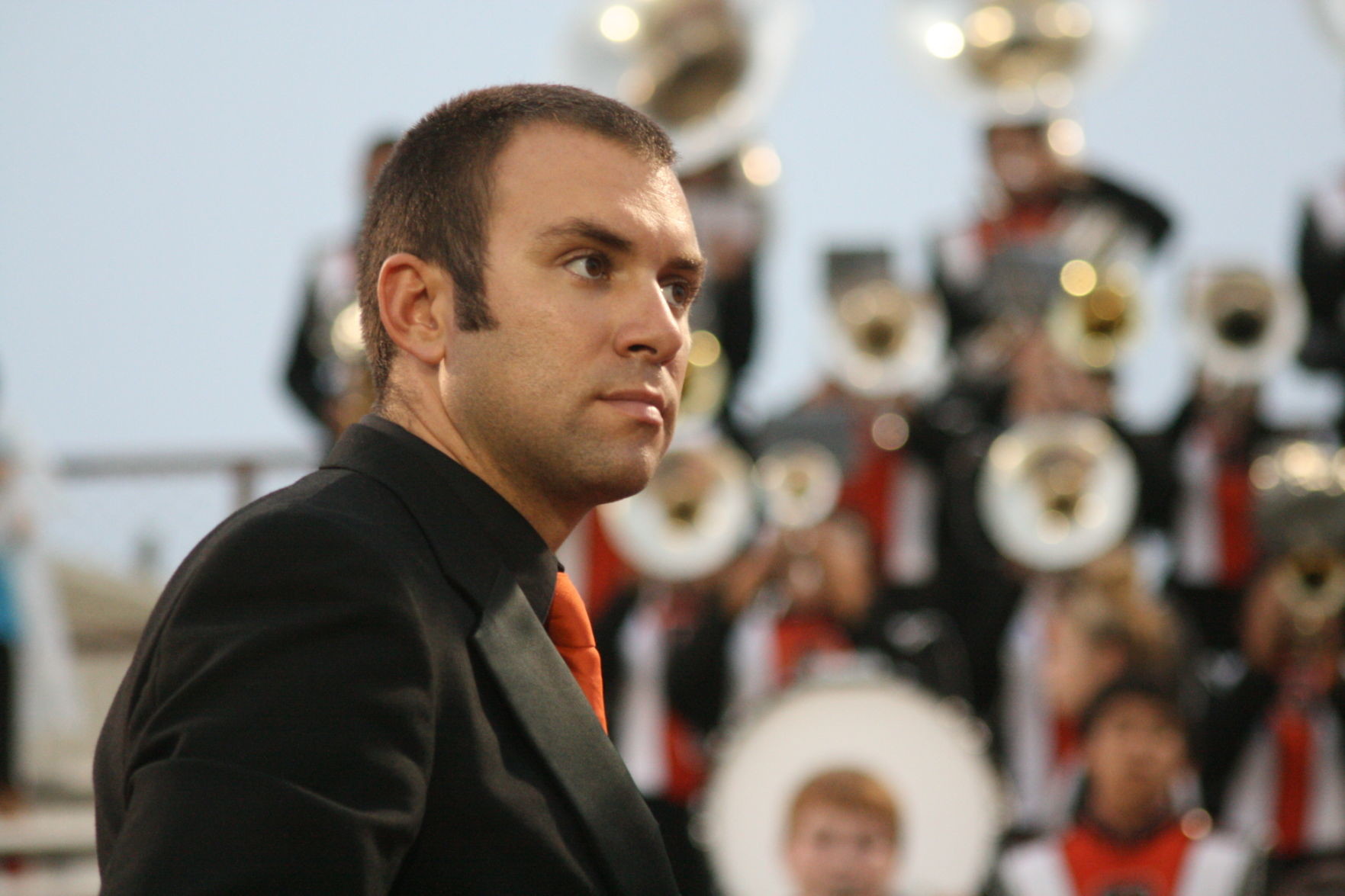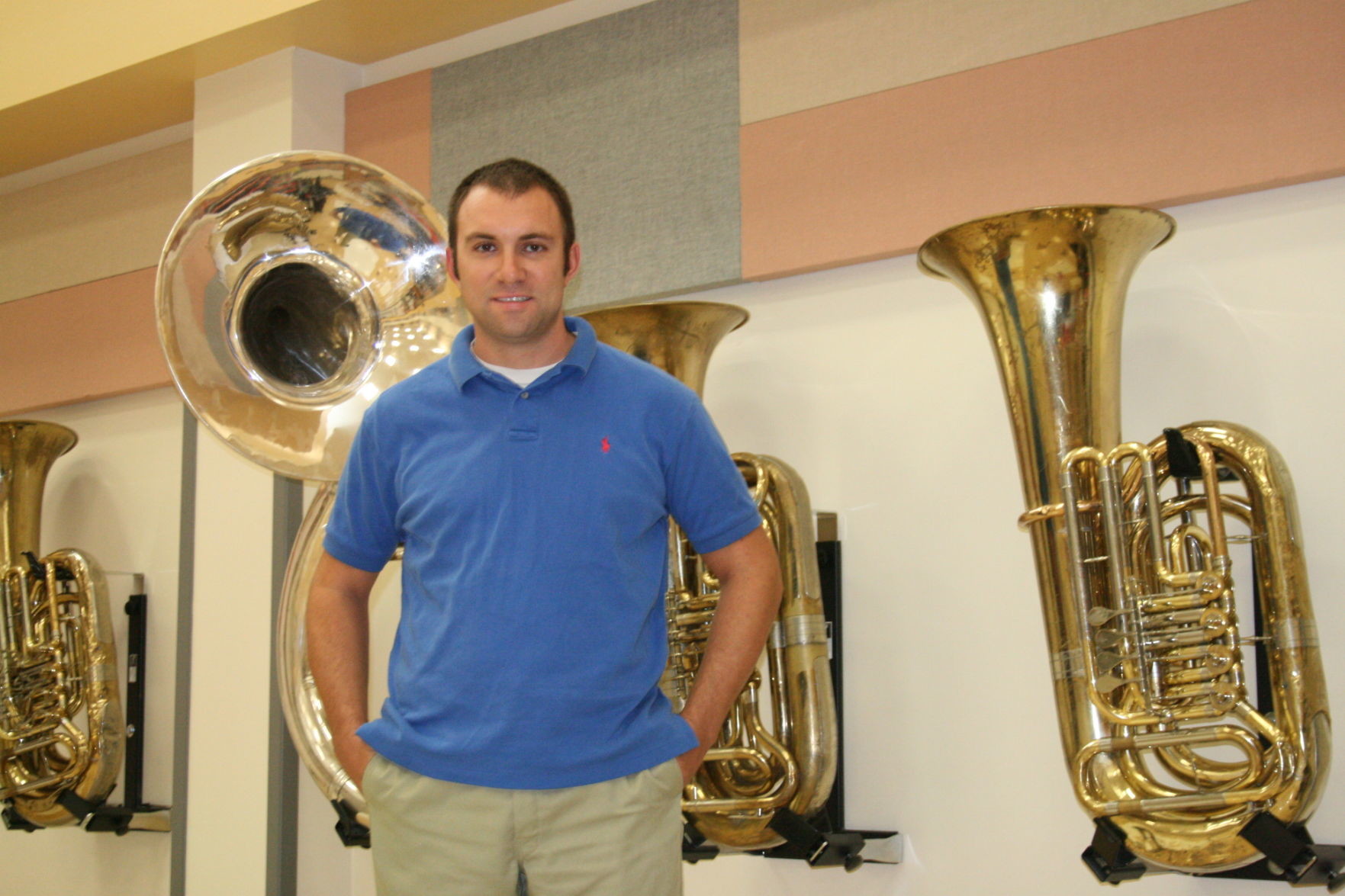Marching toward success
If Raymond Parker was looking to further his career as a band director by boosting a program’s motivation and inspiration, then it looks like he came to the right place.
Early in his second year with GHS, Parker says that while he loves the idea of returning to the glory days of going to state finals in the late 1980s to early ‘90s, he feels it is more important to make sure he helps build a strong program without putting too much weight on its shoulders too early on.
Born and raised in Tyler, Parker began his musical journey in East Texas, even venturing into Louisiana, before landing a band directing gig — the fourth of his career — right here in Gonzales.
Paradoxically, Parker says the inspiration to become a band director came not from a prodigious mentor, but rather from a lack of one.
“I didn’t come from a very good band,” he admitted. “Our band here in Gonzales marches and does things considerably better than my old high school band. So I think the disappointment over that motivated me to become a band director.”
As a young musician, Parker honed his chops as an alto saxophone player before woodshedding in college and training to become a teacher.
“I had to work really hard as a freshman and sophomore because I didn’t have very good training in high school,” he reflected. “I’m probably the last person you’d expect to become a band director. But with some good luck and mentoring, I was able to do it.”
Parker studied at Tyler Junior College and later Texas State University then earned a Master’s degree at Northwestern State University in Natchitoches, La. When he took over as band director for GHS, he got to meet quite a few new faces.
“We have about 75 students in the high school band,” he said. “I think the overall program from grades 6-12 has about 300. My wife Dana is the band director at the junior high campus.”
When it comes to being able to teach such a wide array of instruments, Parker says in college you start by selecting a primary instrument and becoming an expert on it.
“Then your junior and senior years they teach you how to teach other instruments,” he said. “One semester you take a high brass class that teaches you French horn and trumpet, then the next semester you take low brass which teaches you trombone, baritone and tuba. Later come the woodwind instruments.”
Parker says one of the things he likes most about teaching students is what music has to offer them — the emotional side of artistic expression.
“We try to pick music to play that has a lot of sensibilities and can touch not only those who listen — but those who play it,” he said. “It’s emotional — we get in touch with that personal side of a student. When you’re playing at the top of your level, it’s a great feeling. It’s an expression from the heart.”
Parker says his high school students are starting to tap into that area through the process of picking songs that they find most inspirational.
“We didn’t just go to the library and select three pieces of music,” he said. “There was an extensive process that we went through last fall selecting the music we’re using this year. We were asking ourselves what we could do to make our show more than just notes on a page.”
However, if Parker feels a student may not be reaching his or her true potential as a musician, then it’s the teacher’s job to help get them on track.
“We’ll try to work harder with those students,” he said. “Not special treatment, but we will work to build a better relationship with them. If we as instructors are unsuccessful in breaking through, sometimes we’ll have other students help them out. If it’s a close friend helping, that’s even better. I believe in offering any resource I can to bring out the most in a student.”
So is Parker taking the Mighty Apache Band all the way to state finals this year? Actually, for Parker and Co., he says for right now it’s all about taking the marching in stride.
“I would be OK if we did not go to state,” he said. “I’m concerned about the level of expectation we create for ourselves. If we go to state this year, then next time everybody’s going to be expecting that of us. That’s a lot of pressure, and while I feel that we could do that, we’d be having to cut a lot of corners in order to do so. I’m stressing to my students that it’s more important to do the right things the right way - and if we keep doing that, we’ll eventually get to state anyway.”
Comments










